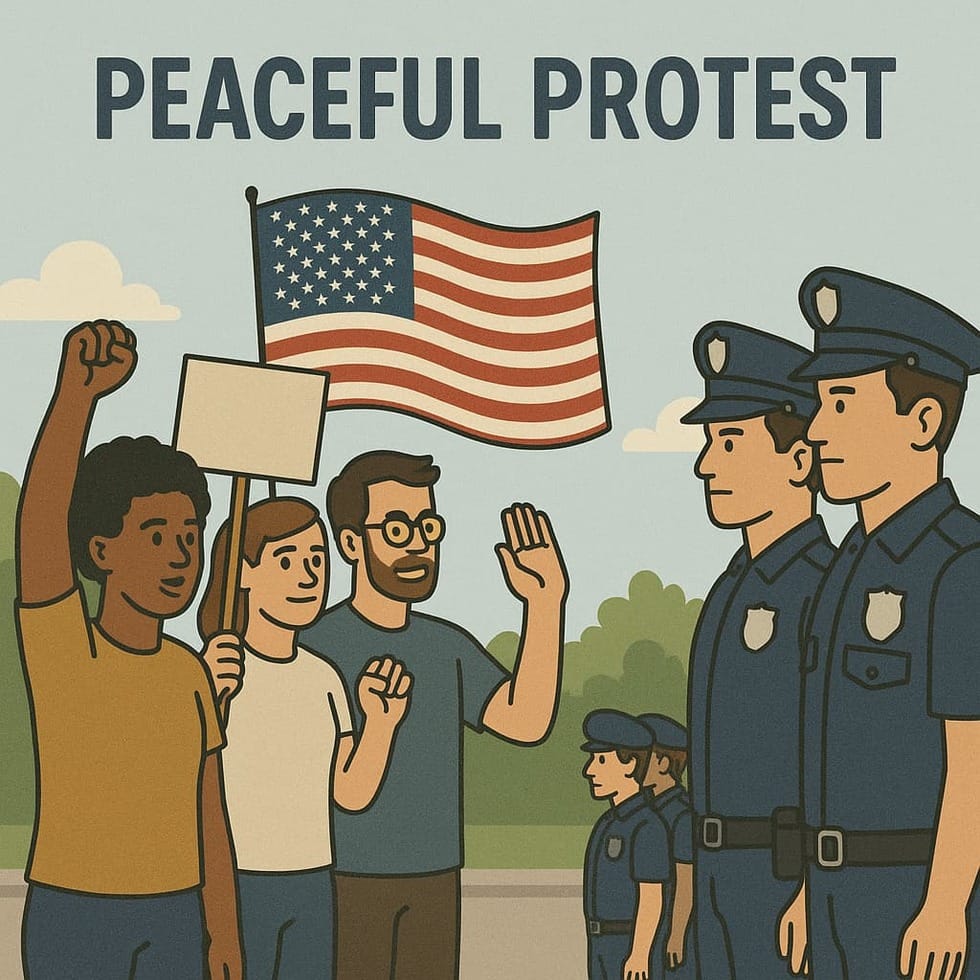DEFENDING PROTESTERS
OVER 26 YEARS OF EXPERIENCE IN CRIMINAL DEFENSE, PROVEN TRACK RECORD, HIGHLY RATED AND REVIEWED DEFENSE ATTORNEY, FORMER PROSECUTOR
Demonstrating may be considered the cornerstone of democracy. Demonstrations, protest marches, and picketing are protected by the First Amendment. However, these activities often lead to arrests for those exercising their rights.

The Law Office of Richard Wagner is devoted to representing the activist, whether you are facing federal or state charges.
The Law Office of Richard Wagner explains the possible consequences. This is extremely helpful. It allows activists and demonstrators to make informed decisions best suited to individual needs.
There are several possibilities that can happen, including whether the City Attorney or District Attorney decides to prosecute you, and if so, what the charges are.
If a demonstration occurs in a place controlled by the federal government, there are extensive federal laws that can be used to charge demonstrators.
State charges range from minor, with a penalty of just a fine or community service, to jail or prison sentences. Common examples of charges: resisting or obstructing Penal Code 148, battery on a peace officer Penal Code 243, possession of a weapon, trespass Penal Code 602, inciting a riot Penal Code 403, 404, vandalism Penal Code 594, disorderly conduct PC 415, or failure or refusal to disperse Penal Code section 409.
California Penal Code section 407 says unlawful assembly is “whenever two or more persons assemble together to do an unlawful act or do a lawful act in a violent, boisterous, or tumultuous assembly.” To be unlawful, the assembly must be “violent or pose a clear and present danger of imminent violence.”
The law is clear that First Amendment activity may not be banned simply because prior similar activity led to or involved instances of violence.
California law usually requires law enforcement to book and release activists arrested for non-violent misdemeanors.
Prosecutors sometimes charge conspiracy to keep activists in jail, to force plea bargains, or to make sure bail is set.
Ordering that demonstrators be held and sent to jail rather than cited and released could be a violation of the Fourth Amendment and the First Amendment.
Former LA City Prosecutor Richard Wagner can help you.
If you have been charged or cited call (714) 721-4233 The Law Office of Richard Wagner for a FREE Consultation.
LEGAL AUTHORITIES
Amendment I [1791] Congress shall make no law respecting an establishment of religion, or prohibiting the free exercise thereof; or abridging the freedom of speech, or of the press; or the right of the people peaceably to assemble, and to petition the Government for a redress of grievances.
California Penal Code Section 403 | Disturbance of assembly or meeting other than religious or political, Every person who, without authority of law, willfully disturbs or breaks up any assembly or meeting that is not unlawful in its character, other than an assembly or meeting referred to in Section 302 of the Penal Code or Section 18340 of the Elections Code, is guilty of a misdemeanor.
California Penal Code Section 404 | Riot (a) Any use of force or violence, disturbing the public peace, or any threat to use force or violence, if accompanied by immediate power of execution, by two or more persons acting together, and without authority of law, is a riot. (b) As used in this section, disturbing the public peace may occur in any place of confinement. Place of confinement means any state prison, county jail, industrial farm, or road camp, or any city jail, industrial farm, or road camp, or any juvenile hall, juvenile camp, juvenile ranch, or juvenile forestry camp.
California Penal Code Section 409 | Remaining present at place of riot, etc., after warning to disperse, Every person remaining present at the place of any riot, rout, or unlawful assembly, after the same has been lawfully warned to disperse, except public officers and persons assisting them in attempting to disperse the same, is guilty of a misdemeanor.
Amendment IV [1791] The right of the people to be secure in their persons, houses, papers, and effects, against unreasonable searches and seizures, shall not be violated, and no Warrants shall issue, but upon probable cause, supported by Oath or affirmation, and particularly describing the place to be searched and the persons or things to be seized.
